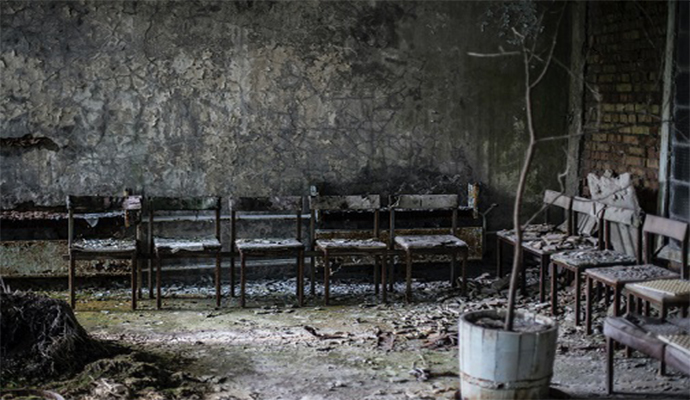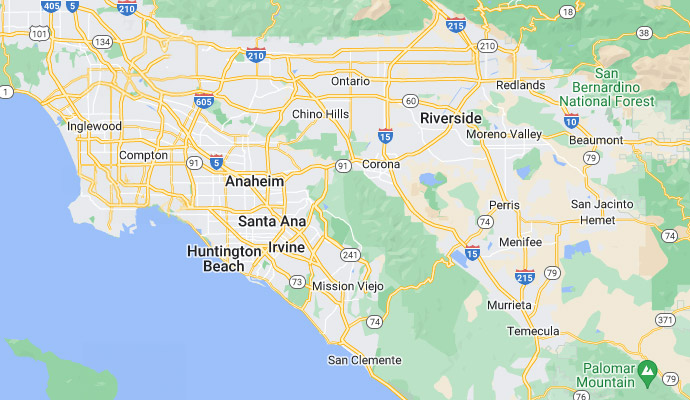
3 Tips to Avoid Smoke Damage at Home
Even though the possibility of a home fire may look remote to you, the fire and smoke damage to your home in case it happens is so devastating that it makes it necessary to take precautions. Controlling everything is indeed impossible. So insuring your home against fire damage is always a good idea.
The homeowner’s insurance policy is generally the best option to get your home back to normal after disasters. Learn more.
However, following the tips below could help you protect yourself and your family and save your belongings.
1. Install a Smoke Detector if You Haven’t Yet
First and foremost, If you live in Orange County, it is already required by law that your home must have some smoke alarms. Check your state legislation to ensure your house is up to code. Legal requirements aside, by properly installing and maintaining smoke alarms, you decrease your chance of dying in a home fire by about 50%. Sadly yet interestingly, most people who lose their lives in home fires are not in the room where the fire breaks out.
In case of a fire breakout, well-maintained smoke alarms alert you to the fire and give you time to escape in a situation where seconds count.
2. Have a Fire Extinguisher and Know How to Use It
To minimize fire damage, keeping fire extinguishers on hand is a must. Knowing how to use your fire extinguishers is as important as having them, as by using the wrong class of fire extinguishers, you can make things far worse. Different classes of fire extinguishers and their uses are as follows:
Class A Fire Extinguisher
These fire extinguishers are meant to fight fires on ordinary combustible materials such as firewood, plastic, cloth, and paper.
Class B Fire Extinguisher
These fire extinguishers are made to put out the fire when its source is a combustible gas or liquid such as gasoline, ethanol, or propane.
Class C Fire Extinguisher
These fire extinguishers work against electrical fires. Please note that water is not effective against this type of fire and may lead to electrocution.
Class K Fire Extinguisher
These fire extinguishers are designed to put out fires caused by flammable liquids such as cooking oils and greases that are vegetable and animal fat-based. Remember that using water against such fires will only spread the flames.
Different types of fire will cause various forms of smoke damage throughout your home.
If your house in Orange County has been damaged by fire, DKI Restotech has years of experience dealing with different fire and smoke damage variations.
Tips to Maximize the Effectiveness of Your Fire Extinguishers
To reduce the fire and smoke damage of a fire break out in your house, follow the following tips :
- Keep Each Type of Fire Extinguisher in Accessible Areas:
The fact that Class K Fire extinguishers work against fire caused by cooking oils suggests that the best place to keep them is under the stove or sink. Likewise, Class B fire extinguishers are rated for flammable liquids such as petroleum and gases, indicating the best place to keep your Class B fire extinguisher in your garage.
So, keeping the purpose of each type of fire extinguisher in mind, place them in areas where you can quickly use them in case of emergency.
- Review Your Fire Extinguishers’ Instructions:
The instructions will tell you how to apply the fire extinguishers in the most effective way to fight the fire. For example, Class A extinguishers work best if you keep them near a fireplace. Make sure everyone in your home knows how to use all types of fire extinguishers.
- Make Sure the Fire Extinguishers Are Light Enough:
To be easy for everyone to hold and apply them, ensure that the fire extinguishers in your house are light enough to maneuver for everyone. The standard 5-pound model has proven to be easy for everyone to handle.
3. Observe Safe Practices
In Many occasions, our own careless behaviors cause fire damage to the house. Observing the following practices will reduce the likelihood of a fire breakout in your home.
In the Kitchen:
Always ensure that flammable items like rags and curtains are far away from the oven, stove, or hot plates. Never leave the kitchen unattended if the food is on the stove.
In the Bedroom:
Any time electricity is present, there is a chance of fire. So if possible, don’t use electric blankets and space heaters in your bedroom. Also, never overload the wall sockets with too many plugs.
Don’t Smoke Inside:
Smoking inside has never been a good idea as it is the leading cause of fire fatalities, according to the U.S. Fire Administration.
Don’t Leave a Burning Candle:
Always place your candles and tip-proof candle holders and keep them away from flammable items like curtains and blankets. Before leaving or going to sleep, make sure to extinguish them.
Look for Faulty Wiring and Electrical Appliances
If you hear buzzing somewhere in the house, don’t ignore it, as it can be a sign of faulty electrical wiring. Another sign can be unusual odors from appliances like a dryer. Finally, if the fuse keeps blowing or the circuit breaker keeps tripping, it can be a sign of a wiring problem.












